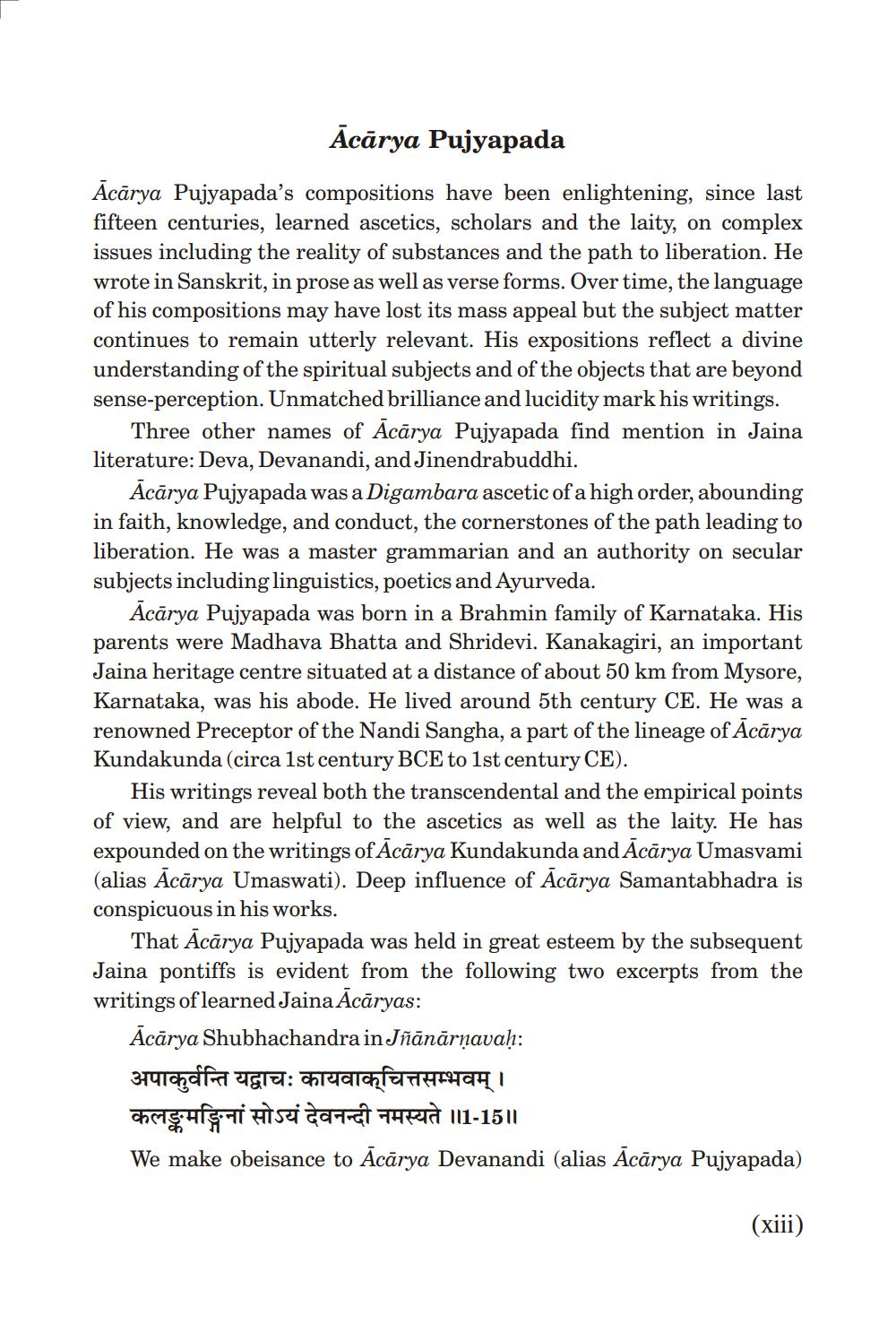________________
Acārya Pujyapada
Acārya Pujyapada's compositions have been enlightening, since last fifteen centuries, learned ascetics, scholars and the laity, on complex issues including the reality of substances and the path to liberation. He wrote in Sanskrit, in prose as well as verse forms. Over time, the language of his compositions may have lost its mass appeal but the subject matter continues to remain utterly relevant. His expositions reflect a divine understanding of the spiritual subjects and of the objects that are beyond sense-perception. Unmatched brilliance and lucidity mark his writings.
Three other names of Acārya Pujyapada find mention in Jaina literature: Deva, Devanandi, and Jinendrabuddhi.
Acārya Pujyapada was a Digambara ascetic of a high order, abounding in faith, knowledge, and conduct, the cornerstones of the path leading to liberation. He was a master grammarian and an authority on secular subjects including linguistics, poetics and Ayurveda.
Acārya Pujyapada was born in a Brahmin family of Karnataka. His parents were Madhava Bhatta and Shridevi. Kanakagiri, an important Jaina heritage centre situated at a distance of about 50 km from Mysore, Karnataka, was his abode. He lived around 5th century CE. He was a renowned Preceptor of the Nandi Sangha, a part of the lineage of Acarya Kundakunda (circa 1st century BCE to 1st century CE).
His writings reveal both the transcendental and the empirical points of view, and are helpful to the ascetics as well as the laity. He has expounded on the writings of Acarya Kundakunda and Acārya Umasvami (alias Acārya Umaswati). Deep influence of Acarya Samantabhadra is conspicuous in his works.
That Acārya Pujyapada was held in great esteem by the subsequent Jaina pontiffs is evident from the following two excerpts from the writings of learned Jaina Acāryas:
Acarya Shubhachandra in Jñānārṇavaḥ:
अपाकुर्वन्ति यद्वाचः कायवाक्चित्तसम्भवम् ।
कलङ्कमङ्गिनां सोऽयं देवनन्दी नमस्यते ॥1-15॥
We make obeisance to Acarya Devanandi (alias Acārya Pujyapada)
(xiii)




